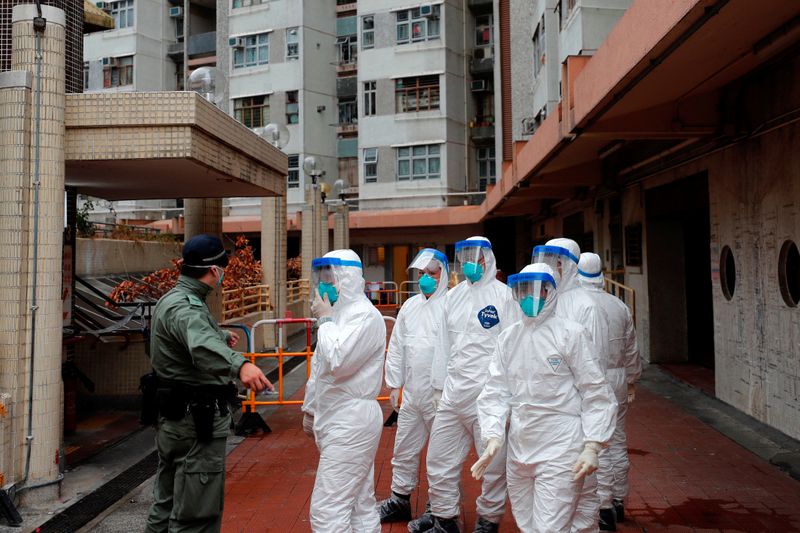HONG KONG (Reuters) - As the spread of coronavirus sends jitters across Hong Kong, usually bustling shopping malls, restaurants and retailers are deserted, leaving some small business owners contemplating their future in the global financial hub.
While Hong Kong's retail sales extended their free-fall in December as months of sometimes violent anti-government protests took a heavy toll, fears over the virus and government advice for people to stay at home are piling on even more pressure.
Lin Chan, 30, a beauty salon entrepreneur, told Reuters footfall in her eyebrow-shaping salon is down nearly 70%.
"For us doing eyebrow trimming, the distance from the customers is very small," Chan said.
"A lot of customers will cancel their bookings."
In a bid to retain customers, Chan is offering a free face mask and packs of disinfectant hand wipes as a gift to customers when they finish their treatment - quite a treat in a city where panic buying for such items has left shop shelves empty.
Wu Ji, 38, who runs the eponymous Wu Ji Workshop Co that specializes in carpets for automotive vehicles and employs more than 10 people in Hong Kong and mainland China, is also feeling the pain.
"All of our carpets get produced in the mainland and then shipped to Hong Kong for installation," he told Reuters. "If the source of your products is closed off, the entire supply chain is already broken."
The Hong Kong government has shut 10 border checkpoints with mainland China but stopped short of a complete closure.
Wu, who sells his carpets wholesale as well as directly to car owners, considers himself lucky that revenue is only down 30%, when some businesses nearby have already shut up shop.
"If the situation continues for more than a month, we will be entirely out of stock," he said.
While Hong Kong leader Carrie Lam has said closing the entire border would be inappropriate, impractical and discriminatory, Wu is still in favor of such a move despite any further potential damage to his business.
"Only if Hong Kong closes up (the border) entirely, the people of Hong Kong will be happy," Wu said.

"We don't know for how long the neighborhoods will keep getting infected. We don't know when the communities may explode. This terror is what makes us the most scared."